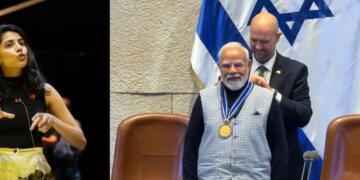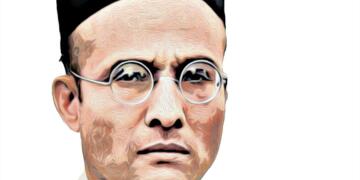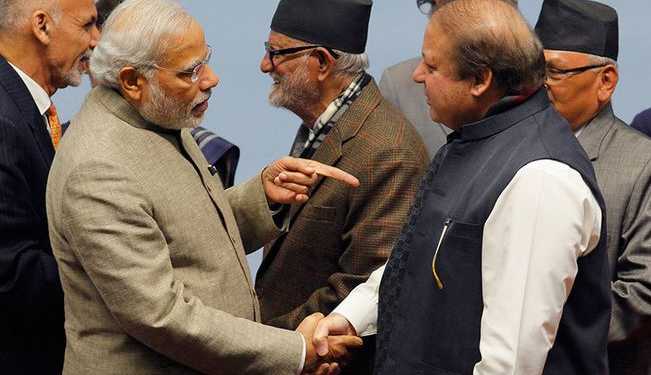When Narendra Modi began raising the issue of human rights violations in Balochistan, sections of the Indian media and intelligentsia were up in arms. Although their disagreement with the prime minister’s move stemmed mostly from the hatred they have harboured against him, their argument had one point which seemed valid. For the first time in many years Pakistan had received no foreign aid, indicating that India’s age-long attempt to isolate them globally was finally paying dividends. It wasn’t the right time for India to interfere in Pakistan’s internal affairs, for it would muddy the waters when things were going our way.
Prime Minister Modi needless to say, is cleverer, better informed and more competent than halfwit columnists. His overtures to the people of Balochistan wasn’t an impulsive reaction to divert attention from the Kashmir issue. It wasn’t a populist statement to make the Indian nationalists salivate. Contrary to what these columnists predicted, not a single member of the global community came out in support of Pakistan, or expressed dissatisfaction with India for crossing a line. In fact, world leaders at the G20 Summit gave Mr. Modi a patient hearing about how Pakistan spreads terrorism and how it deserves sanctions instead of aid. The U.S. openly took India’s line, and blasted Pakistan for spreading terrorism on different occasions. Clearly, Mr. Modi had his groundwork laid out.
In hindsight, we realize that India’s strategy has evolved to that of a multi-pronged attack, taking the global community with it at every step. It isn’t the origin of terrorism, or both countries interfering with the affairs of each other, that the world considers as parameters to pass judgement on the Indo-Pak problem anymore. What Mr. Modi has made sure of is that the Indo-Pak problem is perceived from the prism of India and Pakistan, of India being the good guy and Pakistan being the bad guy. Irrespective of the issue or the situation, irrespective of the conventional global standards, India is considered to be in the right while Pakistan is considered to be in the wrong. In many ways, this is as accurate a picture one can have of the conflict.
Pakistan has always been India’s biggest hindrance to peace and prosperity. For a Prime Minster to reduce Pakistan to what Modi has reduced it to in two years, is nothing short of phenomenal. The ease with which he has been able to engineer the current circumstances though, makes many wonder what India has been up to for so many years. But we must keep in mind that with Prime Ministers full of nostalgia about their birthplaces on the other side of the border, or Prime Ministers who had been subdued their entire lives and were determined to leave a mark on history by winning a Nobel Peace Prize, it was impossible for India to conceive of a Pakistan Policy keeping national interest in mind.
How hard can it be to isolate a country like Pakistan?
Nobody has conned the Americans like they have. The world’s most wanted man was given shelter there by their military. Their military has always ruled the country, overtly or covertly. The military has sponsored and used terrorists to bleed their neighbors on either sides. More than half the country is illegally occupied territory. Large scale oppression and genocide are prevalent. None of their countrymen have made any significant contribution to the world. And to top it all, it sits on a pile of nuclear warheads. There is literally no reason for any outsider to like this country.
This is the simple message that Mr. Modi has conveyed to the world, something the Indian establishment should have done long ago.
The Chinese and the Saudi Arabians too, who are considered to be Pakistan’s only allies, have refrained from confronting India over this. But what makes Mr. Modi’s message so effective, is that it wasn’t explicit at all. It was the perfect example of ‘show, don’t tell’. Actions speak louder than words.
The Prime Minister went about this very craftily. He made repeated overtures to the civilian establishment, drawing much ire from the military establishment which was actually at the helm of affairs. Not only did it create a rift between military and civilian establishment, but it threatened to render the military insignificant. The Pakistani military is single-handedly responsible for keeping the pot boiling when it comes to the Indo-Pak conflict, for without it there would be no justification for its existence. At the same time, they cannot simply take over the country overtly, for military regimes are unacceptable in today’s world. With Mr. Modi’s overtures to the civilian establishment and bypassing of the military establishment, the latter had to assert itself and justify its existence. Hence, infiltrators attempted to cross the border. Hence, Pathankot happened. Now nobody can question Mr. Modi’s claims at international forums about Pakistan being a chronic menace.
Mr. Modi has used other factors to his advantage as well to push forward this narrative. The Americans are increasingly getting closer to India, due to their need of important credible partners in Asia to contain China. This American desperation has been leveraged effectively by India. The most powerful country in the world largely responsible for global mainstream narrative now tows India’s line regarding its conflict with Pakistan. The view that India has tried its best to bring about peace but Pakistan has scuttled it each time, is now the accepted narrative about the Indo-Pak conflict.
Malala Yusafzai, the Nobel Prize winning teenager who is mostly the creation of the global media, has been considered the only sane voice and credible global opinion maker from Pakistan in the last few years. Now she has openly spoken about her political ambitions, which were quite unhidden anyway, and she has for the first time taken an anti-India stance to appease her potential electorate. Overnight, she was stripped off her credibility by the very people who gave it to her in the first place. When she spoke about Indian atrocities in Kashmir, the hypocrisy was not lost on the global mainstream. Several people accused her of being in cahoots with Pakistan’s ISI. Instead of using her words to point fingers at India, fingers are pointing at her because she spoke against India. The effects of Indian diplomacy over the last two years are evident.
This is the groundwork Mr. Modi has laid out, and it is this that allows him to go out there, take on Pakistan the way he has, and be taken seriously by the rest of the world. Now, the entire world knows that attempting to initiate a peace process with Pakistan isn’t idealism, it is stupidity. It is futile to expect peace in the region because Pakistan is averse to it. Using Balochistan to counter Pakistan was an approach that would have been considered too outlandish for Indian foreign policy two years ago. Demanding sanctions against Pakistan as opposed to aid would have been considered too extreme. The Indian media and intelligentsia used to consider such approaches to be the Indian right wing’s wishful thinking. Prime Minister Modi has created an environment wherein this line of thought has been mainstreamed.
With every passing day, PM Modi is cornering the Pakistanis a little more.




























